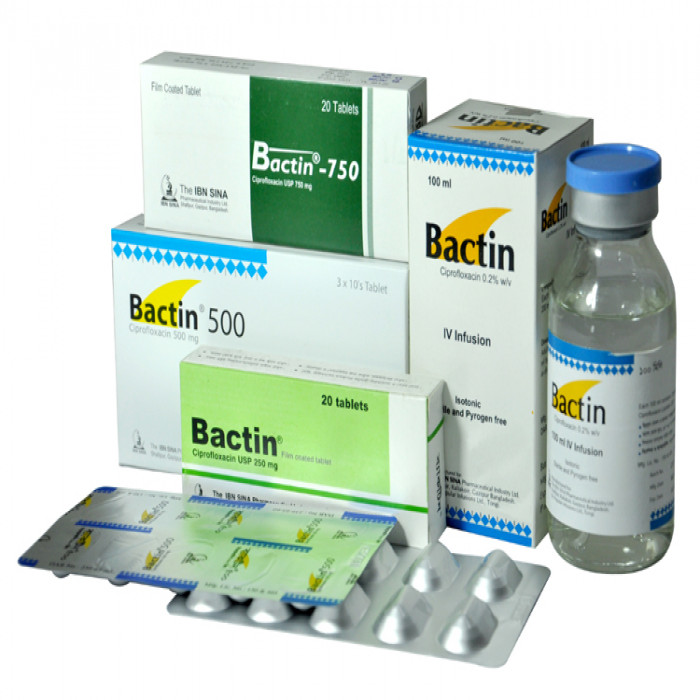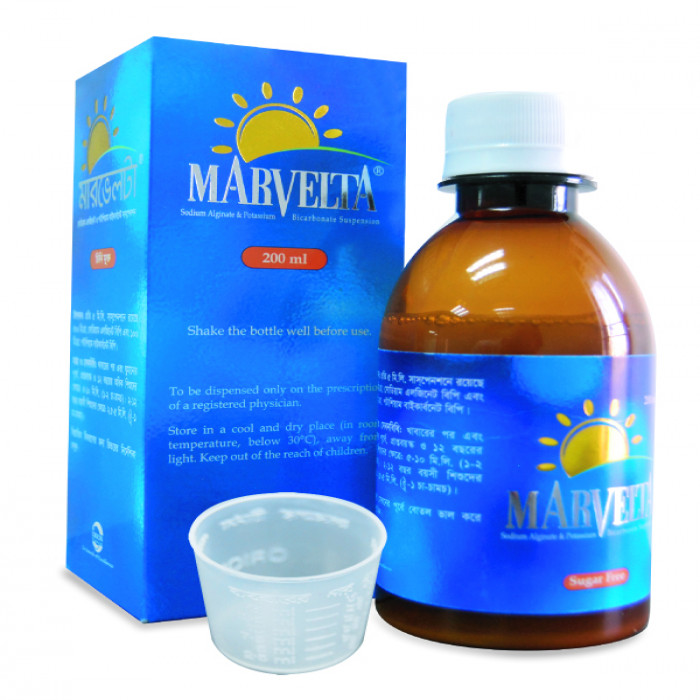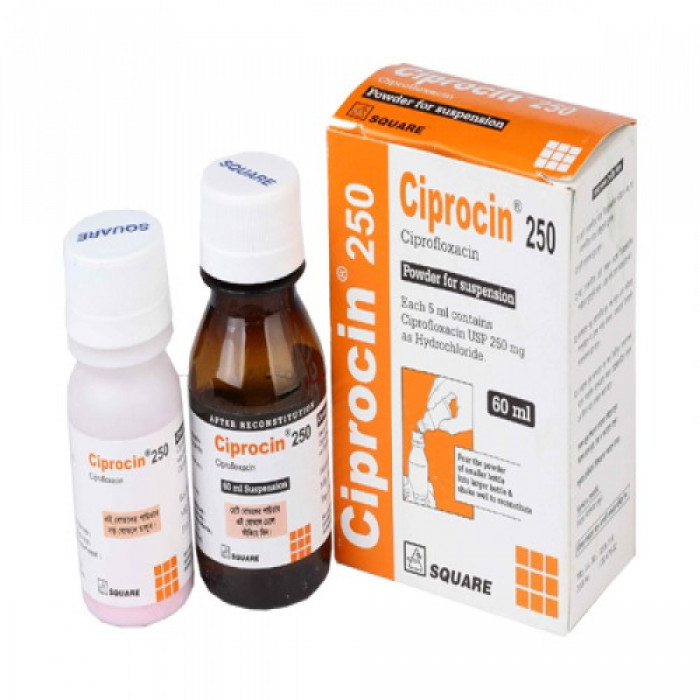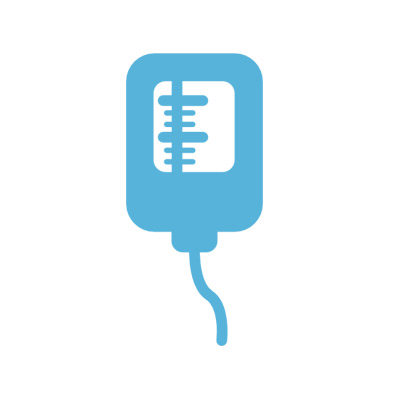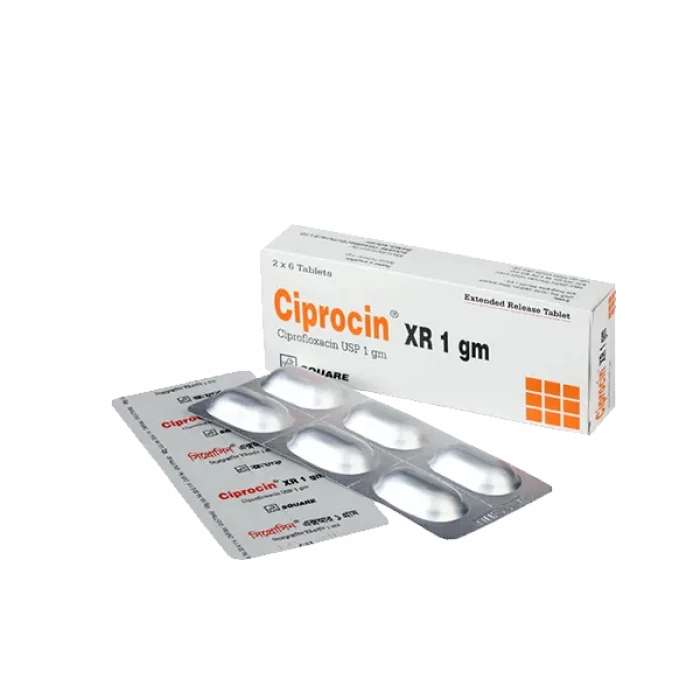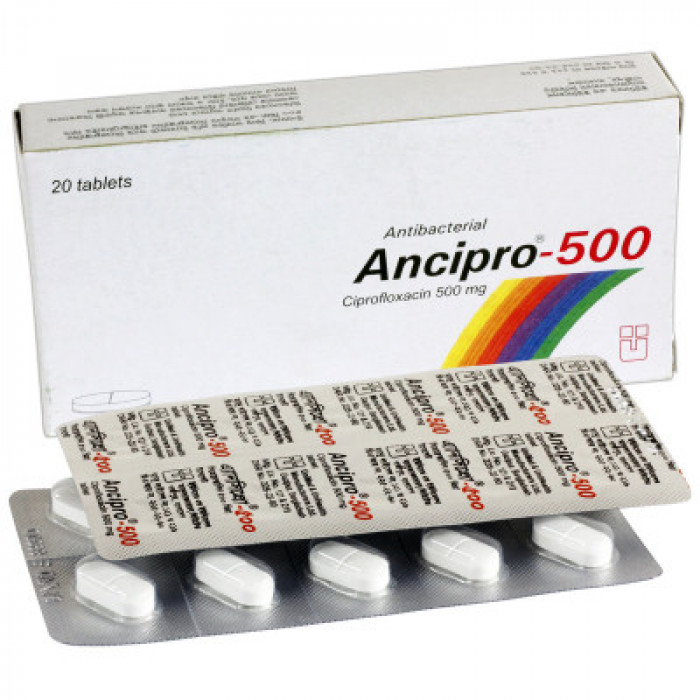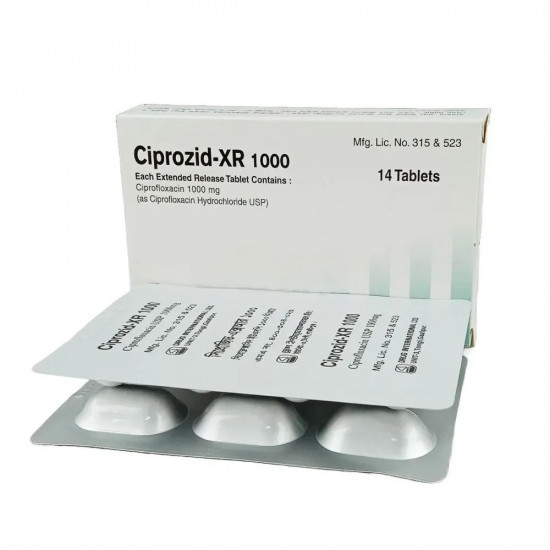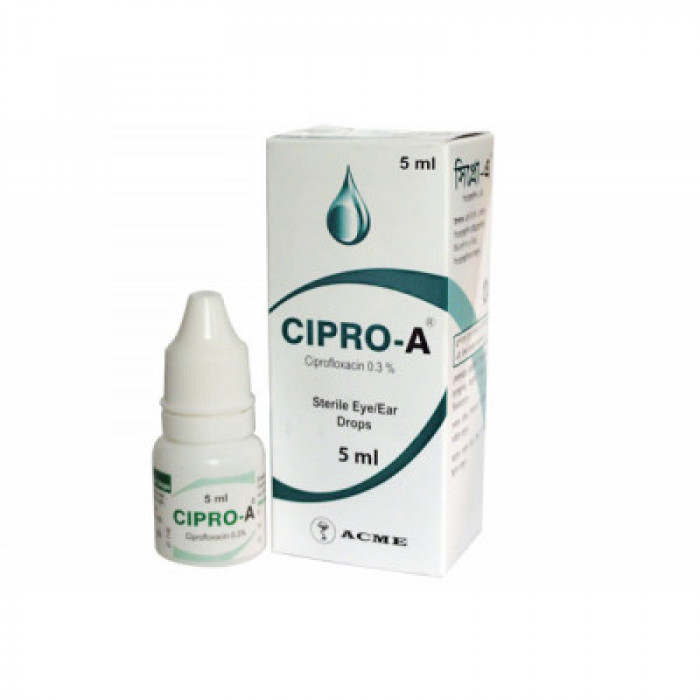
✔ 100% Authentic Product
👁️ Currently Viewing 1311
Tablet Manufacturer/Distributor: Orion Pharmaceuticals Ltd. Generic Name:Ciprofloxacin 750mg
Discount
Price: ৳ 173
MRP:
৳
182.18
5%
Off

100% Genuine Products, Guaranteed

Safe & Secure Payments, Always

Fast, Secure & Efficient Delivery

Proper Packaging
 Cash on Delivery - All over Bangladesh
Cash on Delivery - All over Bangladesh Regular Delivery - 12-24 Hours, Dhaka City* Charge Tk.39-59
Regular Delivery - 12-24 Hours, Dhaka City* Charge Tk.39-59 Regular Delivery - 24-48 Hours, Other Cities* Charge Tk.99-110
Regular Delivery - 24-48 Hours, Other Cities* Charge Tk.99-110
🌙 রমযান অফার 🌙
 ফ্রি ডেলিভারিঃ - ৭৯৯ টাকা+ অর্ডারে, ঢাকা
শহরে
ফ্রি ডেলিভারিঃ - ৭৯৯ টাকা+ অর্ডারে, ঢাকা
শহরে ফ্রি ডেলিভারিঃ - ২৭৯৯ টাকা+ অর্ডারে, ঢাকার
বাহিরে
ফ্রি ডেলিভারিঃ - ২৭৯৯ টাকা+ অর্ডারে, ঢাকার
বাহিরে
📲 মোবাইল অ্যাপ অর্ডারে সাশ্রয় বেশী
- 🇬
Google Play
- Apple Store
100% Genuine Products, Guaranteed
Safe & Secure Payments, Always
Fast, Secure & Efficient Delivery
Proper Packaging
 Cash on Delivery - All over Bangladesh
Cash on Delivery - All over Bangladesh Regular Delivery - 12-24 Hours, Dhaka City* Charge Tk.39-59
Regular Delivery - 12-24 Hours, Dhaka City* Charge Tk.39-59 Regular Delivery - 24-48 Hours, Other Cities* Charge Tk.99-110
Regular Delivery - 24-48 Hours, Other Cities* Charge Tk.99-110 ফ্রি ডেলিভারিঃ - ৭৯৯ টাকা+ অর্ডারে, ঢাকা
শহরে
ফ্রি ডেলিভারিঃ - ৭৯৯ টাকা+ অর্ডারে, ঢাকা
শহরে ফ্রি ডেলিভারিঃ - ২৭৯৯ টাকা+ অর্ডারে, ঢাকার
বাহিরে
ফ্রি ডেলিভারিঃ - ২৭৯৯ টাকা+ অর্ডারে, ঢাকার
বাহিরে- 🇬 Google Play
- Apple Store
🌙 রমযান অফার 🌙
📲 মোবাইল অ্যাপ অর্ডারে সাশ্রয় বেশী
✅ Description:
Indications
Ciprofloxacin is indicated for the treatment of Respiratory Tract Infections,Urinary tract infections, Pelvic Inflammatory Diseases, Infectious Diarrhea (Shigella dysenteriae, Vibrio cholera), Typhoid fever, Intra-abdominal infections, Prostatitis, Skin and Soft Tissue Infections, Bone and Joint Infections, Gonorrhea, Neutropenic patients with fever due to bacterial infection, Meningitis, Surgical prophylaxis.
Therapeutic Class
4-Quinolone preparations, Anti-diarrhoeal Antimicrobial drugs
Pharmacology
Ciprofloxacin is a synthetic fluoroquinolone. It has bactericidal activity against a wide range of gram-positive and gram-negative organisms. It inhibits bacterial DNA synthesis by binding with the bacterial enzyme-DNA gyrase and topoisomerase IV which are responsible for DNA supercoiling.
Dosage
Tablet: Adult:
- Respiratory Tract Infections: 500 to 750 mg twice daily (7 to 14 days)
- Urinary tract infections: 250 to 750 mg twice daily (3 to 10 days)
- Pelvic Inflammatory Diseases: 500 to 750 mg twice daily (14 days)
- Infectious Diarrhea (Shigella dysenteriae, Vibrio cholera): 500 mg twice daily (1 to 5 days)
- Typhoid fever: 500 mg twice daily (7 days)
- Intra-abdominal infections: 500 to 750 mg twice daily (5 to 14 days)
- Prostatitis: 500 to 750 mg twice daily (2 to 6 weeks)
- Skin and Soft Tissue Infections: 500 to 750 mg twice daily (7 to 14 days)
- Bone and Joint Infections: 500 to 750 mg twice daily (max. 3 months)
- Gonorrhea: 500 mg as a single dose
- Neutropenic patients with fever due to bacterial infection: 500 to 750 mg twice daily co- administered with appropriate antibacterials.
- Meningitis: 500 mg as a single dose.
- Surgical prophylaxis: 500 mg as a single dose, 60 minutes before procedure.
Suspension: Pediatric:
- 10-20 mg/kg (max. 750 mg) twice daily (10 to 21 days). The duration of therapy depends on the type and severity of infection.
Extended release tablet: In uncomplicated urinary tract infection (acute cystitis), the recommended dose of extended release tablet is 1000 mg tablet once daily for three days.
For IV infusion:
- Urinary Tract Infection: Mild to Moderate: 200 mg 12 hourly for 7-14 days; Severe or Complicated: 400 mg 12 hourly for 7-14 days
- Lower Respiratory Tract infection: Mild to Moderate: 400 mg 12 hourly for 7-14 days; Severe or Complicated: 400 mg 8 hourly for 7-14 days
- Nosocomial Pneumonia: Mild/Moderate/Severe: 400 mg 8 hourly for 10-14 days
- Skin and Skin Structure: Mild to Moderate: 400 mg 12 hourly for 7-14 days; Severe or Complicated: 400 mg 8 hourly for 7-14 days
- Bone and Joint Infection: Mild to Moderate: 400 mg 12 hourly for more than 4-6 weeks; Severe/Comlicated: 400 mg 8 hourly for more than 4-6weeks
- Intra abdominal (Acute abdomen): Complicated: 400 mg 12 hourly for 7-14 days
- Acute Sinusitis: Mild/Moderate: 400 mg 12 hourly for 10 days
- Chronic Bacterial Prostatitis: Mild/Moderate: 400 mg 12 hourly for 28 Days.
Administration
Instruction for the use of Ciprofloxacin IV infusion-
- Check the bag for minute leaks by squeezing the inner bag firmly. If leaks are found, or if seal is not intact, discard the solution.
- Do not use if the solution is cloudy or a precipitate is present.
- Do not use flexible bags in series connections.
- Close flow control clamp of administration set.
- Remove cover from port at bottom of bag.
- Insert piercing pin of administration set into port with a twisting motion until the pin is firmly seated.
- Suspend bag from hanger.
- Squeeze and release drip chamber to establish proper fluid level in chamber during infusion of Ciprofloxacin IV infusion.
- Open flow control clamp to expel air from set.Close clamp.
- Regulate rate of administration with flow control clamp
Duration of treatment: The duration of treatment depends upon the severity of infection, clinical response and bacteriological findings. For acute infections the usual treatment period is 5 to 10 days. Generally treatment should be continued for 3 days after the signs and symptoms of the infection have been disappeared.
Interaction
Concurrent administration of Ciprofloxacin should be avoided with Magnesium or Aluminum containing antacids or sucralfate or with other products containing Calcium, Iron or Zinc. These products may be taken two hours after or six hours before Ciprofloxacin. Ciprofloxacin should not be taken concurrently with milk or other dairy products, since absorption of Ciprofloxacin may be significantly reduced. Dietary calcium is a part of a meal, however, does not significantly affect the absorption of Ciprofloxacin.
Contraindications
It is contraindicated in patients who have known hypersensitivity to Ciprofloxacin or other quinolones.
Side Effects
Side effects include- nausea and other gastrointestinal disturbances, headache, dizziness, joint pain and skin rashes.
Pregnancy & Lactation
There are no adequate and well-controlled studies in pregnant women. Ciprofloxacin should be used during pregnancy only if the potential benefit justifies the potential risk to the fetus and mother. Ciprofloxacin is excreted in human milk. Due to the potential risk of articular damage, Ciprofloxacin should not be used during lactation.
Precautions & Warnings
Patients receiving Ciprofloxacin should be instructed to drink fluids liberally. It should be used with caution in patients with suspected or known CNS disorders such as epilepsy or other factors which predispose to seizures and convulsion. Avoid in patients with known QT prolongation, hypokalemia.
Use in Special Populations
Although effective in clinical trials, Ciprofloxacin is not a drug of first choice in pediatric population.
Overdose Effects
Overdose following Ciprofloxacin administration may lead to seizures, hallucinations, confusion, abdominal discomfort, renal and hepatic impairment as well as crystalluria, haematuria, & reversible renal toxicity.
Storage Conditions
Keep below 30°C temperature, protected from light & moisture. Keep out of the reach of children.Indications
Ciprofloxacin is indicated for the treatment of Respiratory Tract Infections,Urinary tract infections, Pelvic Inflammatory Diseases, Infectious Diarrhea (Shigella dysenteriae, Vibrio cholera), Typhoid fever, Intra-abdominal infections, Prostatitis, Skin and Soft Tissue Infections, Bone and Joint Infections, Gonorrhea, Neutropenic patients with fever due to bacterial infection, Meningitis, Surgical prophylaxis.
Therapeutic Class
4-Quinolone preparations, Anti-diarrhoeal Antimicrobial drugs
Pharmacology
Ciprofloxacin is a synthetic fluoroquinolone. It has bactericidal activity against a wide range of gram-positive and gram-negative organisms. It inhibits bacterial DNA synthesis by binding with the bacterial enzyme-DNA gyrase and topoisomerase IV which are responsible for DNA supercoiling.
Dosage
Tablet: Adult:
- Respiratory Tract Infections: 500 to 750 mg twice daily (7 to 14 days)
- Urinary tract infections: 250 to 750 mg twice daily (3 to 10 days)
- Pelvic Inflammatory Diseases: 500 to 750 mg twice daily (14 days)
- Infectious Diarrhea (Shigella dysenteriae, Vibrio cholera): 500 mg twice daily (1 to 5 days)
- Typhoid fever: 500 mg twice daily (7 days)
- Intra-abdominal infections: 500 to 750 mg twice daily (5 to 14 days)
- Prostatitis: 500 to 750 mg twice daily (2 to 6 weeks)
- Skin and Soft Tissue Infections: 500 to 750 mg twice daily (7 to 14 days)
- Bone and Joint Infections: 500 to 750 mg twice daily (max. 3 months)
- Gonorrhea: 500 mg as a single dose
- Neutropenic patients with fever due to bacterial infection: 500 to 750 mg twice daily co- administered with appropriate antibacterials.
- Meningitis: 500 mg as a single dose.
- Surgical prophylaxis: 500 mg as a single dose, 60 minutes before procedure.
Suspension: Pediatric:
- 10-20 mg/kg (max. 750 mg) twice daily (10 to 21 days). The duration of therapy depends on the type and severity of infection.
Extended release tablet: In uncomplicated urinary tract infection (acute cystitis), the recommended dose of extended release tablet is 1000 mg tablet once daily for three days.
For IV infusion:
- Urinary Tract Infection: Mild to Moderate: 200 mg 12 hourly for 7-14 days; Severe or Complicated: 400 mg 12 hourly for 7-14 days
- Lower Respiratory Tract infection: Mild to Moderate: 400 mg 12 hourly for 7-14 days; Severe or Complicated: 400 mg 8 hourly for 7-14 days
- Nosocomial Pneumonia: Mild/Moderate/Severe: 400 mg 8 hourly for 10-14 days
- Skin and Skin Structure: Mild to Moderate: 400 mg 12 hourly for 7-14 days; Severe or Complicated: 400 mg 8 hourly for 7-14 days
- Bone and Joint Infection: Mild to Moderate: 400 mg 12 hourly for more than 4-6 weeks; Severe/Comlicated: 400 mg 8 hourly for more than 4-6weeks
- Intra abdominal (Acute abdomen): Complicated: 400 mg 12 hourly for 7-14 days
- Acute Sinusitis: Mild/Moderate: 400 mg 12 hourly for 10 days
- Chronic Bacterial Prostatitis: Mild/Moderate: 400 mg 12 hourly for 28 Days.
Administration
Instruction for the use of Ciprofloxacin IV infusion-
- Check the bag for minute leaks by squeezing the inner bag firmly. If leaks are found, or if seal is not intact, discard the solution.
- Do not use if the solution is cloudy or a precipitate is present.
- Do not use flexible bags in series connections.
- Close flow control clamp of administration set.
- Remove cover from port at bottom of bag.
- Insert piercing pin of administration set into port with a twisting motion until the pin is firmly seated.
- Suspend bag from hanger.
- Squeeze and release drip chamber to establish proper fluid level in chamber during infusion of Ciprofloxacin IV infusion.
- Open flow control clamp to expel air from set.Close clamp.
- Regulate rate of administration with flow control clamp
Duration of treatment: The duration of treatment depends upon the severity of infection, clinical response and bacteriological findings. For acute infections the usual treatment period is 5 to 10 days. Generally treatment should be continued for 3 days after the signs and symptoms of the infection have been disappeared.
Interaction
Concurrent administration of Ciprofloxacin should be avoided with Magnesium or Aluminum containing antacids or sucralfate or with other products containing Calcium, Iron or Zinc. These products may be taken two hours after or six hours before Ciprofloxacin. Ciprofloxacin should not be taken concurrently with milk or other dairy products, since absorption of Ciprofloxacin may be significantly reduced. Dietary calcium is a part of a meal, however, does not significantly affect the absorption of Ciprofloxacin.
Contraindications
It is contraindicated in patients who have known hypersensitivity to Ciprofloxacin or other quinolones.
Side Effects
Side effects include- nausea and other gastrointestinal disturbances, headache, dizziness, joint pain and skin rashes.
Pregnancy & Lactation
There are no adequate and well-controlled studies in pregnant women. Ciprofloxacin should be used during pregnancy only if the potential benefit justifies the potential risk to the fetus and mother. Ciprofloxacin is excreted in human milk. Due to the potential risk of articular damage, Ciprofloxacin should not be used during lactation.
Precautions & Warnings
Patients receiving Ciprofloxacin should be instructed to drink fluids liberally. It should be used with caution in patients with suspected or known CNS disorders such as epilepsy or other factors which predispose to seizures and convulsion. Avoid in patients with known QT prolongation, hypokalemia.
Use in Special Populations
Although effective in clinical trials, Ciprofloxacin is not a drug of first choice in pediatric population.
Overdose Effects
Overdose following Ciprofloxacin administration may lead to seizures, hallucinations, confusion, abdominal discomfort, renal and hepatic impairment as well as crystalluria, haematuria, & reversible renal toxicity.
Storage Conditions
Keep below 30°C temperature, protected from light & moisture. Keep out of the reach of children.Ciprofloxacin is indicated for the treatment of infections caused by susceptible isolates of the designated microorganisms in the conditions and patient populations listed below.
Uncomplicated Urinary Tract Infections (Acute Cystitis): Ciprofloxacin is indicated for the treatment of uncomplicated urinary tract infections (UTIs) caused by Escherichia coli, Proteus mirabilis, Enterococcus faecalis, or Staphylococcus saprophyticus.
Because fluoroquinolones, including Ciprofloxacin, have been associated with serious adverse reactions and for some patients uncomplicated UTI (acute cystitis) is self-limiting, reserve Ciprofloxacin for treatment of uncomplicated UTIs (acute cystitis) in patients who have no alternative treatment options.
⚠️Disclaimer:
At ePharma, we’re committed to providing accurate and accessible health information. However, all content is intended for informational purposes only and should not replace medical advice from a qualified physician. Please consult your healthcare provider for personalized guidance. We aim to support, not substitute, the doctor-patient relationship.





